14 Home Remedies To Lighten Acne Scars | Types And Causes
Learn some most effortless ways to minimize the appearance of those scars on your face.
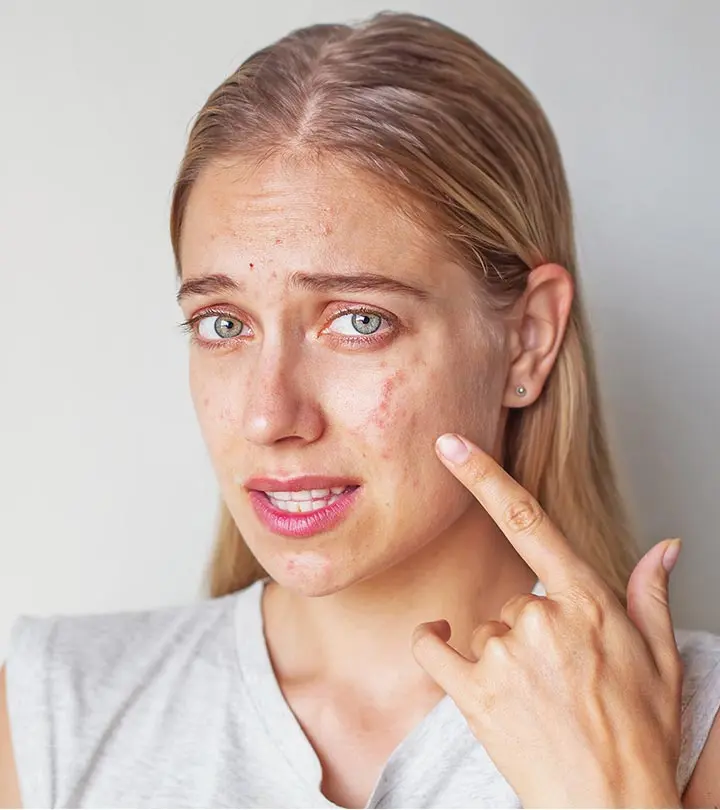
Image: Shutterstock
Acne affects an estimated 90% of adolescents (1). Severely inflamed acne can leave behind scars. Acne scars cause a lot of psychological distress, especially in adolescents (1). But it is important to remember that scar formation is normal.
A survey studied 723 adults with atrophic acne scars and their impact on their psychological well-being. The study found that 25.7% of the participants felt less attractive due to acne scars, 27.5% were self-conscious because of them, 8.3% reported being physically and verbally abused due to their facial scars, and 15.9% stated that they were unfairly dismissed from their workplace.
In this article, we will be talking about some home remedies that may help lighten the appearance of acne scars and pimple marks. These remedies may not work on all skin types. Hence, consult a skincare expert before exploring these options.
In This Article
Acne Scars Vs. Pimple Marks
Acne scars are usually pitted and almost never heal completely. Pimple marks are tiny, flat, and dark spots caused by post-inflammatory hyperpigmentation that can fade in a few weeks on their own. Picking or popping a pimple can increase the chances of pimple marks. However, they don’t cause long-term damage to your skin. On the other hand, acne scar fading takes a considerably longer time and is difficult to remove completely.
Note: Some acne scars are caused by inflammation and require medical treatment. They cannot be treated with home remedies. Consult a dermatologist to find out if this is the case with your acne scars.
 Did You Know?
Did You Know?Scroll down to the next section to learn more about how to remove acne scars naturally.
Key Takeaways
- Using natural ingredients like orange peel and honey on acne scars may help reduce their appearance over time.
- Applying a thin layer of coconut oil overnight may control acne and help with acne scar lightening due to its antibacterial effects.
- Using baking soda in your skincare routine may help manage pimple occurrence by killing acne-causing bacteria.
- The salicylic acid content in witch hazel can help reduce the occurrence of acne and improve skin texture.
Home Remedies That May Help Lighten Acne Scars And Pimple Marks
1. Orange Peel Powder
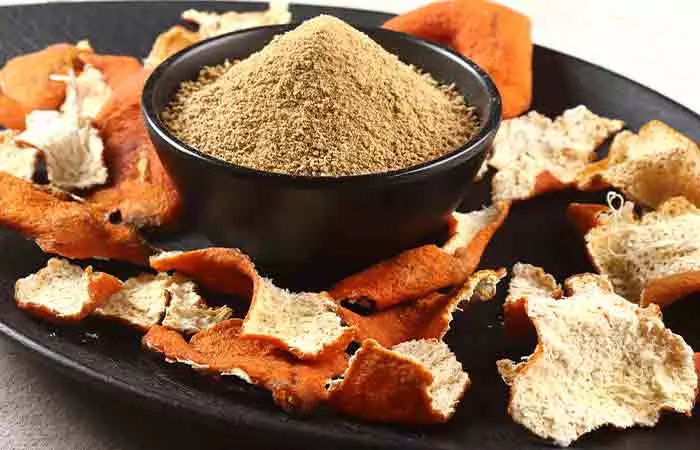
A study was conducted in Japan to study the effect of orange peel extracts on melanogenesisi A process through which melanocytes (skin cells) produce melanin, a bark-brown pigment responsible for skin tanning. , a complex process that involves the formation of melanin. It was found that the extract could help suppress melanogenesis. Hence, orange peel may help eliminate acne spots and blemishes (3).
You Will Need
- 1 teaspoon honey
- 1 teaspoon orange peel powder
What You Have To Do
- Mix both the honey and orange peel powder to make a thick paste.
- Apply the paste to the areas with acne and pimple scars.
- Wash it off after it dries.
How Often You Should Do This
Do this 3-4 times a week.
2. Coconut Oil
A research conducted to study the potential benefits of plant oils on skin shows that coconut oil possesses antibacterial properties that may help reduce acne (4)
You Will Need
- 1 teaspoon of coconut oil (VCO)
What You Have To Do
- Warm the virgin coconut oil by rubbing it between your palms.
- Dab it on the acne scars and leave it on until the next morning.
How Often You Should Do This
Do this every night before going to bed.
Note: Do not try this remedy if you have oily skin as coconut oil may clog pores and worsen acne.
3. Tea Tree Oil
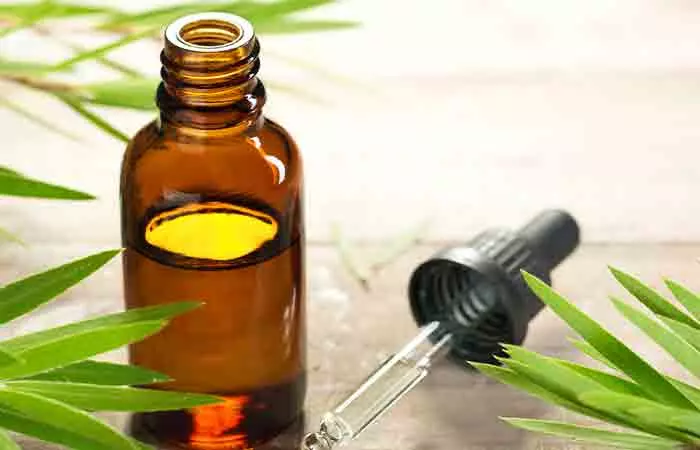
Tea tree oil possesses antimicrobial and anti-inflammatory properties that can reduce acne lesions and scaling (5). Their antimicrobial properties can help reduce the occurrence of pimples. However, there is no evidence to prove that it lightens acne scars and pimple marks. As topical tea tree oil is considered safe for most people, you can try out this remedy.
You Will Need
- 2-3 drops of tea tree essential oil
- A carrier oil (sweet almond oil or jojoba oil)
What You Have To Do
- Mix a few drops of tea tree oil with a carrier oil of your choice.
- Apply this mixture to the scars.
- Leave it on for an hour before washing it off.
How Often You Should Do This
Repeat once daily until the scars vanish.
Arpita, a blogger, who struggled with acne breakouts used tea tree oil for acne scarring and loved the results. In one of her blog posts, she writes, “I love tea tree oil. It keeps the skin soft and at the same time helps in getting rid of those ugly acne marks (i).”
Note: Do a patch test before trying this remedy as tea tree oil may cause skin irritation.
4. Aloe Vera Gel
A mixture of aloe vera, tea tree oil, and propolis has also been found to reduce acne scars and pimple marks (6).
Aloe vera can reduce acne scars by reducing hyperpigmentation and acting as an immunity booster and anti-inflammatory agent (7), (8)
You Will Need
- 1 teaspoon aloe vera gel
What You Have To Do
- Extract a tablespoon of gel from aloe vera leaves.
- Apply it to the scars and blemishes.
- Leave it on overnight.
How Often You Should Do This
You can do this every night before going to bed.
5. Lemon Juice
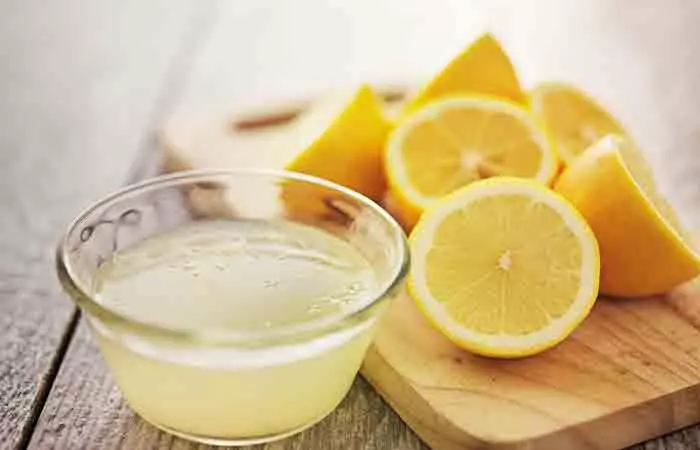
Lemon juice contains vitamin C that exhibits anti-pigmentary properties (11). Thus, it may fade acne scars, blemishes and pimple marks over time.
You Will Need
- ½ lemon
- Cotton pad
What You Have To Do
- Squeeze out the juice of half a lemon and dab a cotton pad into the juice.
- Apply it to the affected areas.
- Rinse it off thoroughly after 10 minutes.
How Often You Should Do This
You can do this 3-4 times a week.
Note: If you have sensitive skin, do not try this remedy as it may cause redness and irritation. Do a patch test before the remedy, and make sure you apply sunscreen afterward as lemon juice can make your skin photosensitive.
6. Green Tea
If you want to know how to remove pimple scars naturally, then green tea is one of your best solutions. It contains polyphenols, which have antimicrobial and anti-inflammatory properties that help in the prevention and treatment of acne (12). Green tea also helps reduce scars and pimple marks with its anti-inflammatory and antioxidant properties (13)
You Will Need
- 1 green tea bag
- Honey
What You Have To Do
- Make a face pack by mixing moist green tea leaves with honey.
- Apply the pack all over your face and leave it on for 15 minutes.
- Rinse it off thoroughly with plain water.
How Often You Should Do This
Do this 1-2 times a week.
Arpita revealed she also uses a green tea scrub for her acne marks: “I also use a green tea scrub once a week and a green tea toner everyday! That surely helps my skin to stay soft and supple. In the long run, it helps in reducing pimple marks too, naturally!”
7. Turmeric
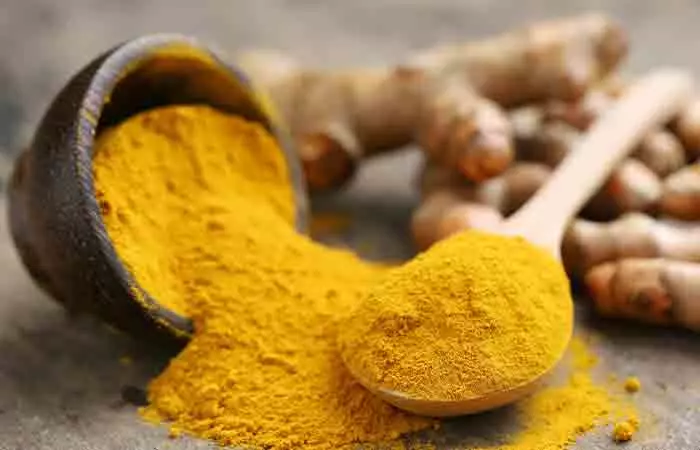
Turmeric is one of the oldest and most commonly used spices for skin remedies. Studies show that topical application of turmeric showed improvement in skin conditions like acne, psoriasis, and alopecia (14). It also contains curcumin, which is an effective skin-lightening agent (15). Thus, it may fade acne scars and pimple marks. However, current studies are limited and further research is essential for a better understanding of how it may help reduce acne scars and pimple marks.
You Will Need
- A teaspoon of turmeric powder
- 1 lemon
What You Have To Do
- Squeeze out the lemon juice in a bowl and mix it with turmeric powder.
- Gently apply this mixture to your face and other affected areas.
- Leave it on for about 15 minutes before washing it off.
How Often You Should Do This
You can do this once every alternate day.
Note: If you have sensitive skin, do not try this remedy as it may cause redness and irritation. Do a patch test before the remedy, and make sure you apply sunscreen afterward.
8. Potato Juice
A study published in the Journal Of Medicinal Plants Studies states that the potassium, sulfur, phosphorus, and chloride found in potatoes are useful for treating acne blemishes and pimple spots (16). Potatoes also contain azelaic acid that may reduce hyperpigmentation caused by mild to moderate acne and breakouts (16), (17). It works as a natural acne scar serum as it contains the brightening enzyme catecholase.
You Will Need
- 2 tablespoons potato juice
What You Have To Do
- Crush a raw potato to extract its juice.
- Soak a cotton ball with this juice and apply it to the areas with acne scars.
- Leave it on for 10 minutes and wash it off.
How Often You Should Do This
You can apply this juice 2-3 times a week.
9. Cocoa
Cocoa butter is rich in polyphenols and essential minerals that make it highly suitable for the treatment of skin problems. It exhibits anti-inflammatory and antioxidant properties that can reduce acne and promote the repair of skin tissues (18). This may help in lightening acne scars.
You Will Need
- 1 tablespoon cocoa butter
What You Have To Do
- Take a tablespoon of cocoa butter and warm it by rubbing it between your palms.
- Apply it to the scars and leave it on overnight.
- Wash it off with a mild cleanser the next morning.
How Often You Should Do This
Do this daily until the scars disappear.
Note: Avoid this remedy if you have oily skin.
10. Witch Hazel
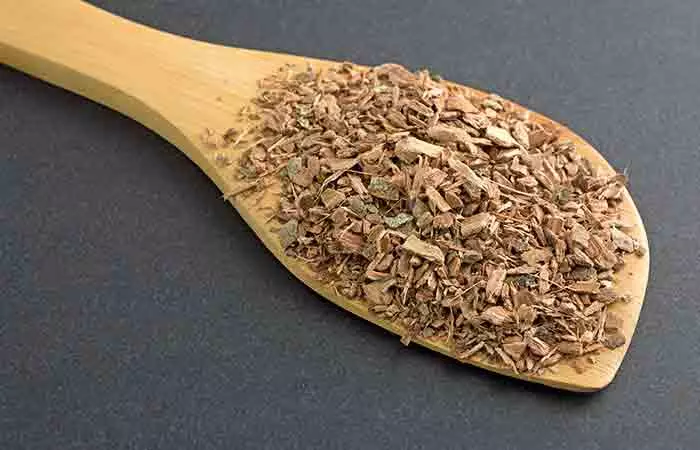
Witch hazel is found in many acne cosmeceuticals (19). It contains salicylic acid, which might help reduce the number of acne spots (20).
You Will Need
- 1 tablespoon witch hazel bark
- 1 cup water
What You Have To Do
- Soak the witch hazel bark in water for 30 minutes
- Boil the mixture.
- Reduce it to a simmer and let it cook for 10 minutes.
- Remove the mixture from the heat and let it cool down for an additional 10 minutes.
- Strain and store the liquid in a container.
- Apply the liquid to the affected areas using a cotton pad.
How Often You Should Do This
Do this daily until the scars disappear.
11. Baking Soda
Baking soda is known for its ability to kill bacteria (21). This might help control acne occurrence. However, there are no scientific studies to verify its efficacy. There is only anecdotal evidence and testimonials that speak about the effect of baking soda in clearing acne scars and pimple marks.
Studies have shown that it may be more effective than benzoyl peroxide in treating acne scar discoloration (22), but some studies also emphasize the harmful effects of baking soda. Hence, it is important to consult a healthcare provider before trying it on your skin.
You Will Need
- 2 teaspoons baking soda
- Water
What You Have To Do
- Mix the baking soda in water until you have a paste.
- Apply the paste to the scars and leave it on for 20 minutes.
- Wash it off thoroughly with a mild cleanser.
How Often You Should Do This
Do this 2-3 times a week.
Note: Baking soda can dry out the skin, so apply a hydrating moisturizer immediately after using this remedy.
12. Vitamin Supplements
Taking vitamin supplements may help reduce acne scars and pimple marks.
Vitamin A can help treat acne, though its direct effect on acne scars has not been studied (23). Although using vitamin E oil for acne is a popular treatment for scars, blemishes, and wounds, no studies have been able to prove the efficiency of acne scar removal with vitamins. (24). Ascorbic acid, or vitamin C, is rich in antioxidants, and the application of topical creams for acne scars is suitable for treating acne and post-inflammatory hyperpigmentation (25).
You can also consume foods rich in vitamins, like green leafy vegetables, citrus fruits, fish, carrots, and avocados.
Note: Do not take these supplements without consulting your doctor.
13. Lavender Oil
According to research, lavender oil possesses anti-inflammatory properties (26). Therefore it may be beneficial in reducing acne and the risk of developing acne scars and marks.
You Will Need
- 2-3 drops of lavender oil
- 5 tablespoons of aloe vera gel
What You Have To Do
- Mix the oil with the aloe vera gel.
- Apply the mixture to acne scars.
- Rinse with lukewarm water after 20 minutes.
How Often You Should Do This
Once daily.
14. Apple Cider Vinegar
The presence of lactic acid in apple cider vinegar may potentially alleviate acne and improve the skin of individuals with this condition (27) (28). Consequently, it may aid in the gradual fading of acne scars and healing of acne.
You Will Need
- 1 tablespoon of apple cider vinegar
- 1 tablespoon of water
What You Have To Do
- Dilute the ACV with water.
- Apply the mixture to acne scars.
- Rinse with lukewarm water after 20 minutes.
How Often You Should Do This
2-3 times weekly.
These were a few natural tips and tricks on how to lighten acne marks naturally. Let us now understand how you can prevent the recurrence of these scars.
Preventive Tips For Acne And Pimple Scars
Acne and pimples occur fairly frequently, but you can always make sure that they don’t leave raised acne scars on your face. Some tips that may help you prevent scars include:
- Wash your face with a non-comedogenic face wash twice daily.
- Always remove makeup from your face before going to bed.
- Do not pick on acne or pop your pimples.
- Apply sunscreen before stepping out in the sun.
- Follow a balanced diet and avoid foods that can cause breakouts.
It is important to ensure prompt treatment of acne. Detecting and addressing it early can help prevent severe cases of inflammation and scarring. Taking OTC medication and seeking dermatological counsel can help keep breakouts in check.
What Causes Acne Scars?
Acne can be classified into two subtypes – non-inflammatory and inflammatory.
Whiteheads and blackheads usually fall under the non-inflammatory subtype. Papules, pustules, nodules, and cysts are the inflammatory types of acne.
Among these types, it is inflammatory acne that tends to leave behind scars and marks.
Inflamed acne blemishes occur when your pores become engorged as a result of excess oil, dead cells, and bacteria clogging them. This leads to the swelling of the pores, which causes the follicle walls to expand and break.
If this rupture occurs close to the surface of your skin, the resulting acne lesion is usually minor and heals quickly. However, if the break in the follicle is deep, the lesion will be more severe, and the infected material may leak out into the dermis (the second layer of skin) and destroy healthy skin tissues.
To round it up, severe acne formation can affect the deeper layers of skin. Your body creates scar tissues during the healing process, and these new tissues look and feel different from normal skin surrounding it. The type of scar depends on how severe the acne was and how deeply it affected the skin. Some scars may be small and barely noticeable, while others can be more visible.
Acne scars are further divided into different types.
Types Of Acne Scars
The most common types of acne scars are:
- Ice-Pick Acne Scars: Narrow, deep, and pitted scars
- Rolling Acne Scars: Broad, depressed scars with slanting edges
- Boxcar Acne Scars: Broad scars with sharp edges
- Atrophic Scars: Flat, thin, and depressed scars
- Hypertrophic Scars: Lumpy and thick scars
- Keloid Scars: Raised, thick, and lumpy scars
You can learn in detail about the types of acne scars here. Regardless of the type, the remedies shared above may help control and reduce the appearance of acne. However, in some cases, you may require more long-term treatment as the acne might be a sign of other underlying conditions. In such cases, you must consult your dermatologist immediately.
How Do Dermatologists Treat Acne Scars?
 Did You Know?
Did You Know?Although many recipes and ingredients are recommended to treat acne scars, not all of them have proven to work. To overcome this situation, visit a dermatologist. Here are some common dermatological treatment options that your doctor might suggest. Note that these procedures are carried out under medical supervision, so self-medication is strictly prohibited.
- Dermabrasion/Microdermabrasion: Dermabrasion and microdermabrasioni A non-invasive procedure that gently exfoliates the skin to minimize the signs of aging and improve skin texture and tone. are facial resurfacing techniques that mechanically remove damaged skin to promote wound healing. Dermabrasion removes the epidermis completely and remodels the skin’s structural proteins. Microdermabrasion for acne scars only removes the outer layer of the epidermis, enhancing the natural process of exfoliation. Both treatments are effective in treating acne scars (1).
- Laser Treatment: Laser treatment is recommended for patients with deep scars (box-car scars). Although there is improvement noticed in laser treatment for acne scars, there are quite a few risk factors and criteria involved in this procedure (1).
- Needling: Dermarolling for acne scars, involves using a sterile roller made of fine, sharp needles to puncture the skin. The bruises thus created on the skin boost the production of collagen and elastin fibers. Results are generally seen about 6 weeks to 3 months from the procedure (1).
- Chemical peels for acne scars:Chemical peeling involves applying chemicals to the skin to remove the damaged outer layers to speed up the skin repair process. The hydroxy acids used in this process include glycolic acid, pyruvic acid, salicylic acid, and trichloroacetic acid (1). The use of silicone sheets for acne scars is also gaining popularity as it is a non-invasive scar removal method. It helps reduce the scar size of both old and new scars.
Infographic: Other Treatment Procedures For Acne Scars
Acne and acne scars are pretty common, and there is a flurry of treatments for them. While we have mentioned many options — natural remedies and dermatological treatments — the list doesn’t end there. Check out the infographic below to learn about some more treatments and methods for eliminating acne scars. Together, you and your doctors can decide what’s best for you. Illustration: StyleCraze Design Team

Excess oil and dead skin clog your pores, resulting in the development of acne in the deeper layers of the skin. This may result in acne scars such as icepick scars or rolling scars. Aloe vera, turmeric, baking soda, or lemon juice are some of the ingredients that may reduce the appearance of your acne scars over time. Along with that, practicing proper skin care hygiene and consuming a balanced diet may prevent acne scars in the long run. However, acne may sometimes be a sign of an underlying medical condition and requires long-term treatment under the guidance of a doctor. Consult a doctor if the above home remedies do not reduce your acne.
Frequently Asked Questions
How long do acne scars take to fade?
Acne scars may take 6 months to fade on their own without the help of any treatments.
Do acne holes go away?
Not all types of acne disappear completely. Some need regular medical treatments along with home remedies to see desired results.
Can salt water remove acne scars?
Salt water may help clean the skin, but it may not reduce acne scars.
Is coffee good for acne?
No, coffee does not reduce acne. You may use it to scrub your face and clean the dirt and oil, which may help prevent breakouts.
Does sugar cause acne?
Yes, sugar may cause acne. A study found that adolescents who consumed sugar had a 3% higher risk of acne (29).
Is egg good for acne?
No, eggs are not good for acne. The yolk contains progesterone which may increase the risk of acne (30).
Illustration: Home Remedies To Lighten Acne Scars | Types And Causes
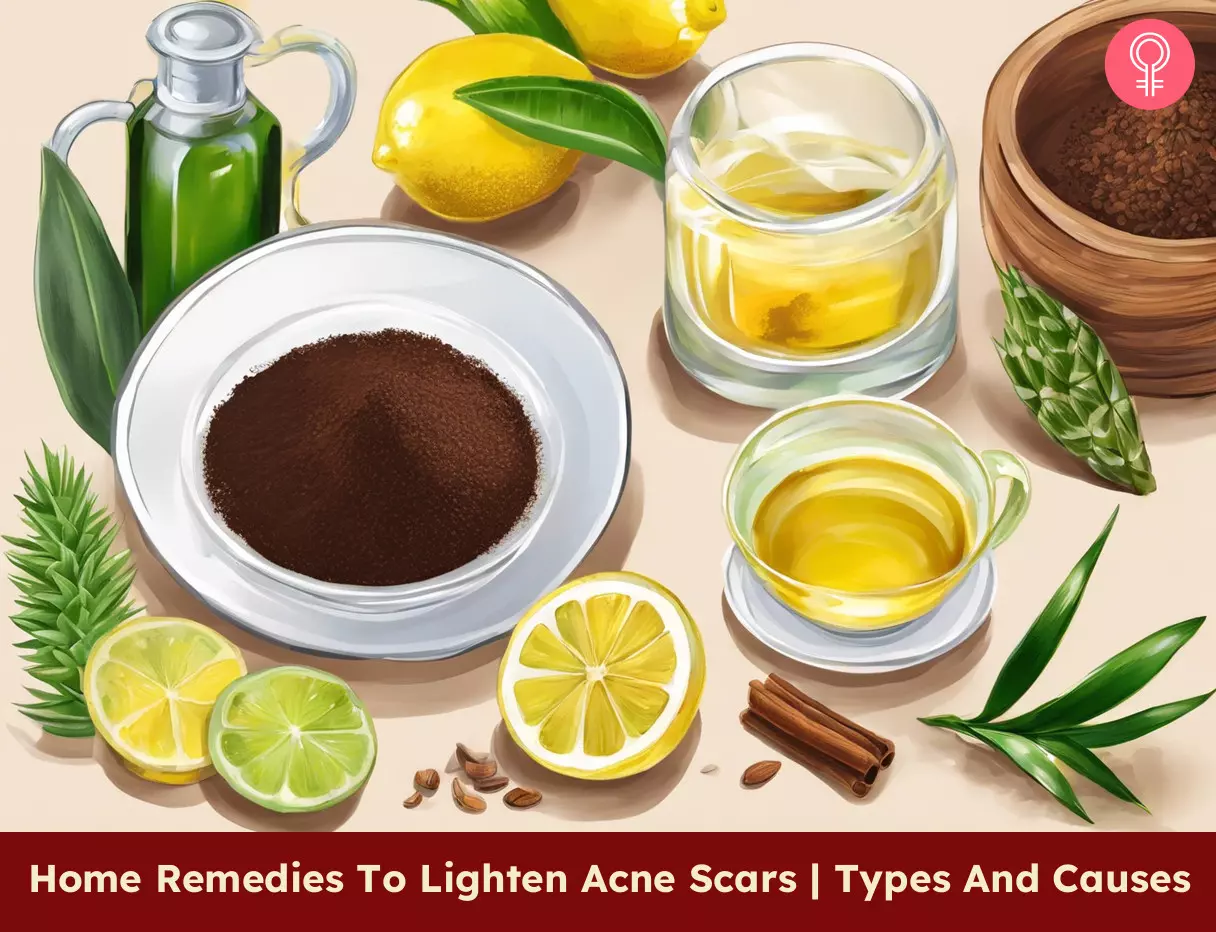
Image: Stable Diffusion/StyleCraze Design Team
Learn how to remove acne scars naturally! Get simple tips and tricks to help reduce the appearance of acne scars by clicking on the video below.
Personal Experience: Source
StyleCraze's articles are interwoven with authentic personal narratives that provide depth and resonance to our content. Below are the sources of the personal accounts referenced in this article.
i. How to get rid of pimple marks – home remedieshttps://indianbeautycenter.blogspot.com/2013/07/how-to-get-rid-of-pimple-marks-home.html
References
Articles on StyleCraze are backed by verified information from peer-reviewed and academic research papers, reputed organizations, research institutions, and medical associations to ensure accuracy and relevance. Read our editorial policy to learn more.
- Acne Scars: Pathogenesisi The process or mechanism by which a viral or bacterial infection leads to a disease or disorder and its associated factors. , Classification, and Treatment, Dermatology research and practice, US National Library of Medicine, National Institutes of Health Search database
https://www.ncbi.nlm.nih.gov/pmc/articles/PMC2958495/ - Acne Scars: Who Gets And Causes, American Academy Of Dermatology Association
https://www.aad.org/public/diseases/acne/causes/acne-causes - A polymethoxyflavone mixture extracted from orange peels, mainly containing nobiletin, 3,3′,4′,5,6,7,8-heptamethyl flavone, and tangeretin, suppresses melanogenesis through the acidification of cell organelles, including melanosomes, Journal of Dermatological Science, US National Library of Medicine, National Institutes of Health.
https://pubmed.ncbi.nlm.nih.gov/28629701/ - Anti-Inflammatory and Skin Barrier Repair Effects of Topical Application of Some Plant Oils, International Journal of Molecular Sciences, US National Library of Medicine, National Institutes of Health.
https://www.ncbi.nlm.nih.gov/pmc/articles/PMC5796020/ - Melaleuca alternifolia (Tea Tree) Oil: a Review of Antimicrobial and Other Medicinal Properties, Clinical Microbiology Reviews, US National Library of Medicine, National Institutes of Health.
https://www.ncbi.nlm.nih.gov/pmc/articles/PMC1360273/ - Treatment of acne with a combination of propolis, tea tree oil, and Aloe vera compared to erythromycin cream: two double-blind investigations, Clinical pharmacology advances, and applications, US National Library of Medicine, National Institutes of Health.
https://www.ncbi.nlm.nih.gov/pmc/articles/PMC6298394/ - On The Novel Action of Melanolysis by a Leaf Extract of Aloe vera and Its Active Ingredient Aloin, Potent Skin Depigmenting Agents, Planta Medica, Thieme.
https://www.thieme-connect.com/products/ejournals/abstract/10.1055/s-0031-1298406 - Medicinal and cosmetological importance of Aloe vera, International journal of natural therapy, ResearchGate.
https://www.researchgate.net/publication/233818204_Medicinal_and_cosmetological_importance_of_Aloe_vera - Medicinal Plants for the Treatment of Acne Vulgaris: A Review of Recent Evidences, Jundishapur Journal Of Microbiology, US National Library of Medicine, National Institutes of Health
https://www.ncbi.nlm.nih.gov/pmc/articles/PMC4740760/ - The Effect Of Aloe Vera Gel On The Anti-Acne Properties Of The Essential Oil Of Ocimum Gratissimum Linn Leaf – A Preliminary Clinical Investigation, International Journal Of Aromatherapy, ScienceDirect,
https://www.sciencedirect.com/science/article/abs/pii/S0962456203001413 - Topical Vitamin C and the Skin: Mechanisms of Action and Clinical Applications, The Journal of clinical and aesthetic dermatology, US National Library of Medicine, National Institutes of Health.
https://www.ncbi.nlm.nih.gov/pmc/articles/PMC5605218/ - Green Tea and Other Tea Polyphenols: Effects on Sebum Production and Acne Vulgaris, Antioxidants, US National Library of Medicine, National Institutes of Health.
https://www.ncbi.nlm.nih.gov/pmc/articles/PMC5384166/ - A comprehensive evidence-based review on the role of topicals and dressings in the management of skin scarring, Archives of dermatological research, US National Library of Medicine, National Institutes of Health.
https://www.ncbi.nlm.nih.gov/pmc/articles/PMC4506744/ - Effects of Turmeric (Curcuma longa) on Skin Health: A Systematic Review of the Clinical Evidence, Phytotherapy research: PTR, US National Library of Medicine, National Institutes of Health.
https://pubmed.ncbi.nlm.nih.gov/27213821/ - Curcumin inhibits melanogenesis in human melanocyte, Phytotherapy research : PTR, US National Library of Medicine, National Institutes of Health.
https://pubmed.ncbi.nlm.nih.gov/21584871/ - Health Benefits and Cons of Solanum tuberosum, Journal of Medicinal Plants Studies,
https://www.plantsjournal.com/vol1Issue1/Issue_jan_2013/3.pdf - Azelaic acid. A review of its pharmacological properties and therapeutic efficacy in acne and hyperpigmentary skin disorders, Drugs, US National Library of Medicine, National Institutes of Health.
https://pubmed.ncbi.nlm.nih.gov/1712709/ - Cocoa Bioactive Compounds: Significance and Potential for the Maintenance of Skin Health, Nutrients, US National Library of Medicine, National Institutes of Health.
https://www.ncbi.nlm.nih.gov/pmc/articles/PMC4145303/ - Moisturizers for Acne, The Journal of clinical and aesthetic dermatology, US National Library of Medicine, National Institutes of Health
https://www.ncbi.nlm.nih.gov/pmc/articles/PMC4025519/ - Treatment of acne vulgaris with salicylic acid pads, Clinical Therapeutics, US National Library of Medicine, National Institutes of Health
https://pubmed.ncbi.nlm.nih.gov/1535287/ - Antibacterial activity of baking soda, Compendium of continuing education in dentistry, US National Library of Medicine, National Institutes of Health
https://pubmed.ncbi.nlm.nih.gov/12017929/ - A randomized controlled trial on the effectiveness of baking soda – acetic acid solution as an adjunct to benzoyl peroxide in treating acne vulgaris among Filipino teenagers and adults https://ejournals.ph/article.php?id=6561
- Oral vitamin A in acne vulgaris, Preliminary report, US National Library of Medicine, National Institutes of Health.
https://pubmed.ncbi.nlm.nih.gov/6453848/ - Vitamin E in dermatology, Indian Dermatology Online Journal, US National Library of Medicine, National Institutes of Health.
https://www.ncbi.nlm.nih.gov/pmc/articles/PMC4976416/ - Vitamin C in dermatology, Indian Dermatology Online Journal, US National Library of Medicine, National Institutes of Health.
https://www.ncbi.nlm.nih.gov/pmc/articles/PMC3673383/ - Antioxidant, analgesic and anti-inflammatory effects of lavender essential oil.
https://pubmed.ncbi.nlm.nih.gov/26247152/ - Long term topical application of lactic acid/lactate lotion as a preventive treatment for acne vulgaris
https://pubmed.ncbi.nlm.nih.gov/17656910/ - Lactic acid peeling in superficial acne scarring in Indian skin
https://pubmed.ncbi.nlm.nih.gov/20883299/ - Acne: prevalence and relationship with dietary habits in Eskisehir, Turkey
https://pubmed.ncbi.nlm.nih.gov/22070422/ - Role of hormones in acne vulgaris
https://pubmed.ncbi.nlm.nih.gov/21763298/
Read full bio of Dr. Vindhya L Veerula
Read full bio of Shaheen Naser
Read full bio of Anjali Sayee
Read full bio of Swathi E







 Trivia
Trivia
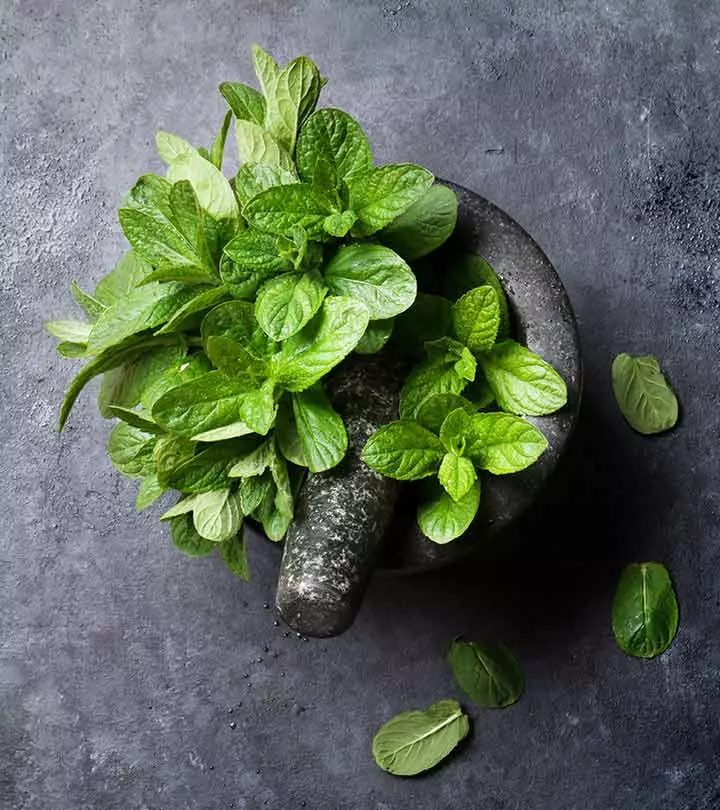
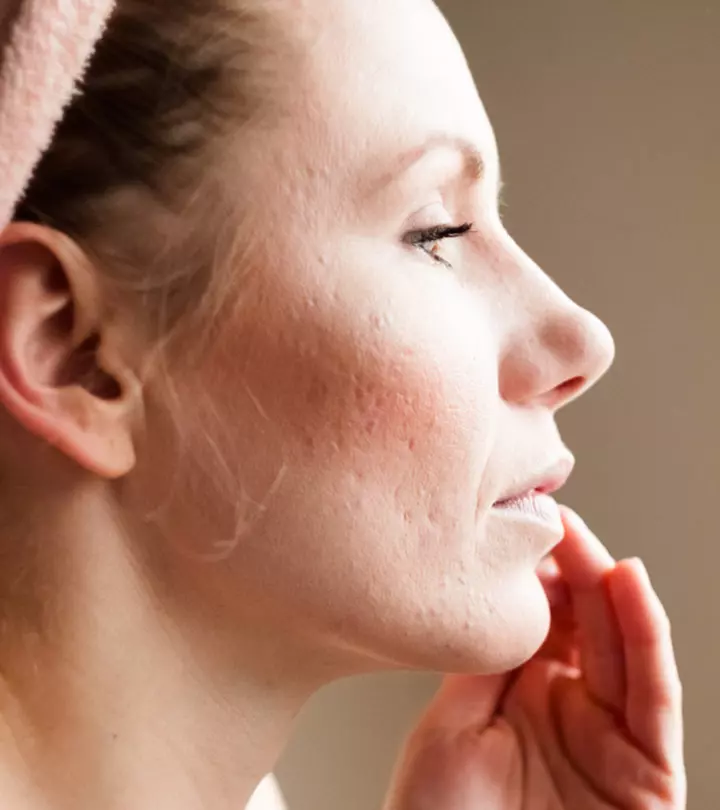
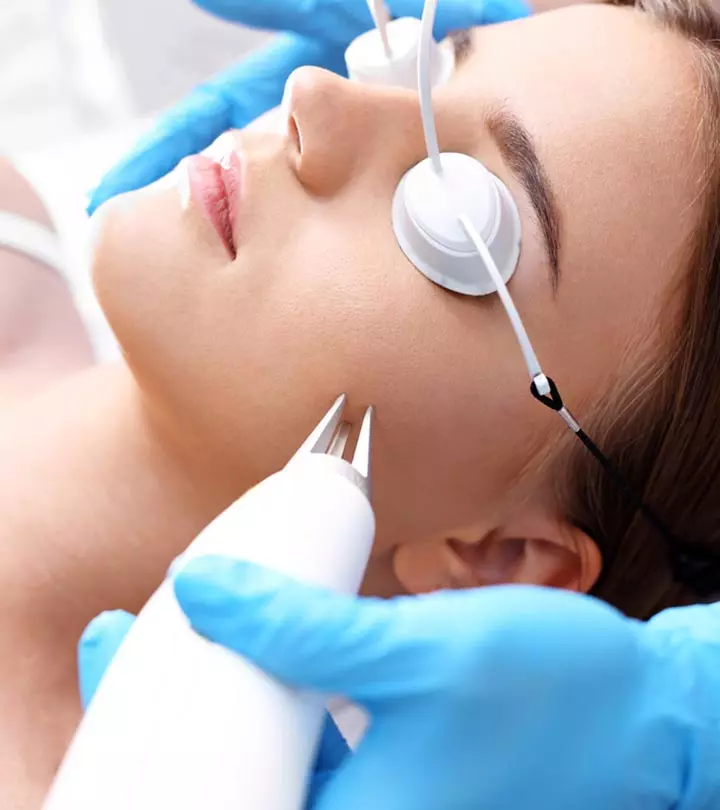
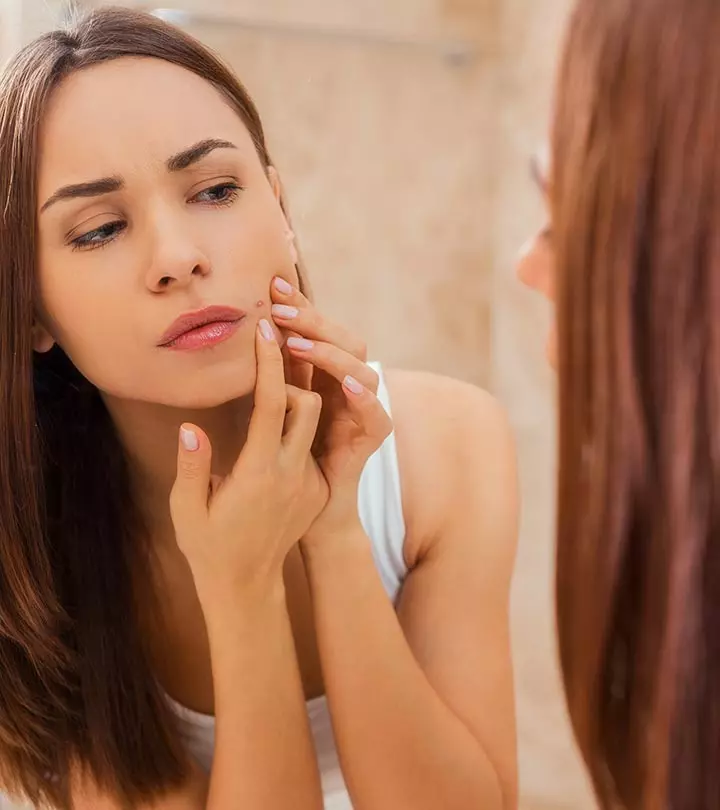
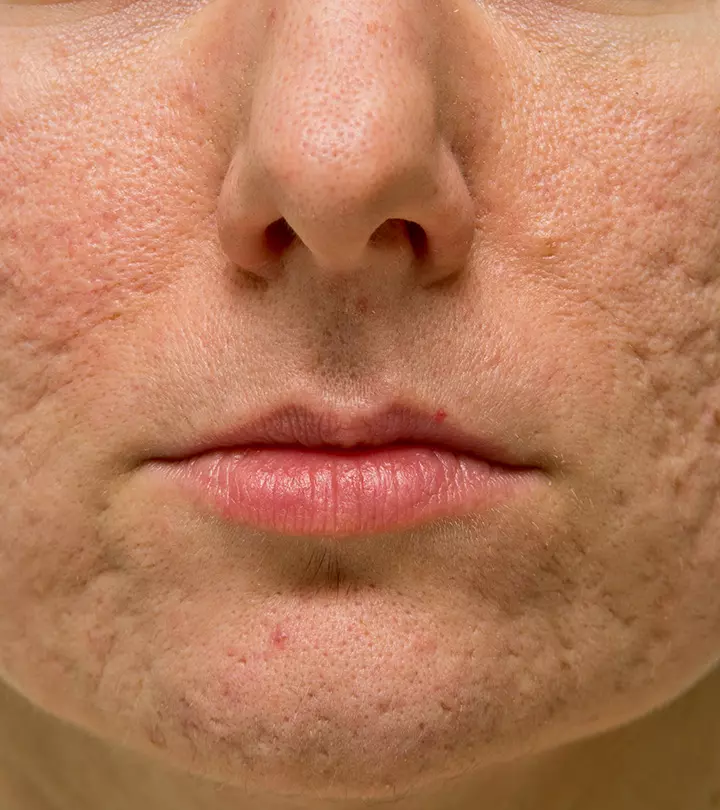
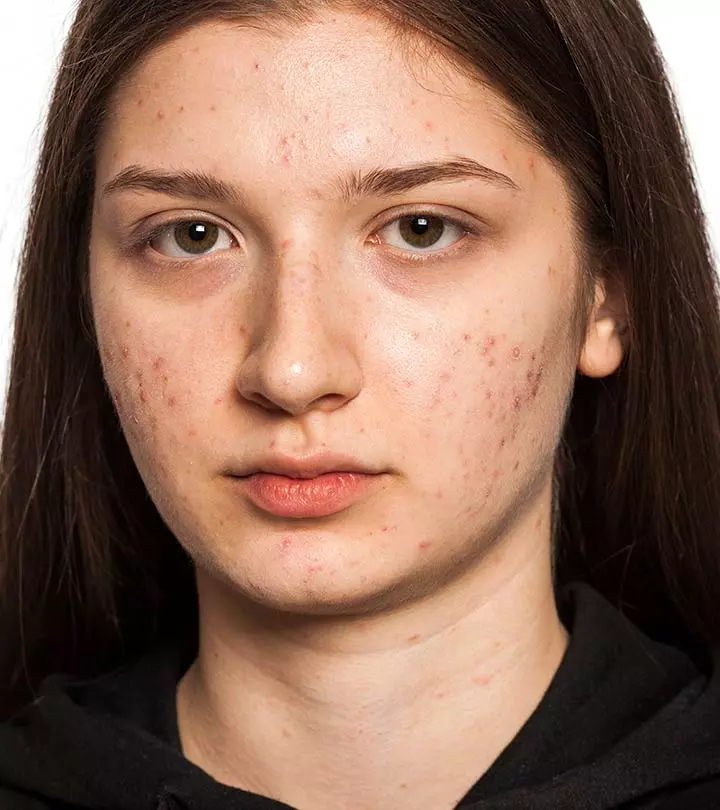
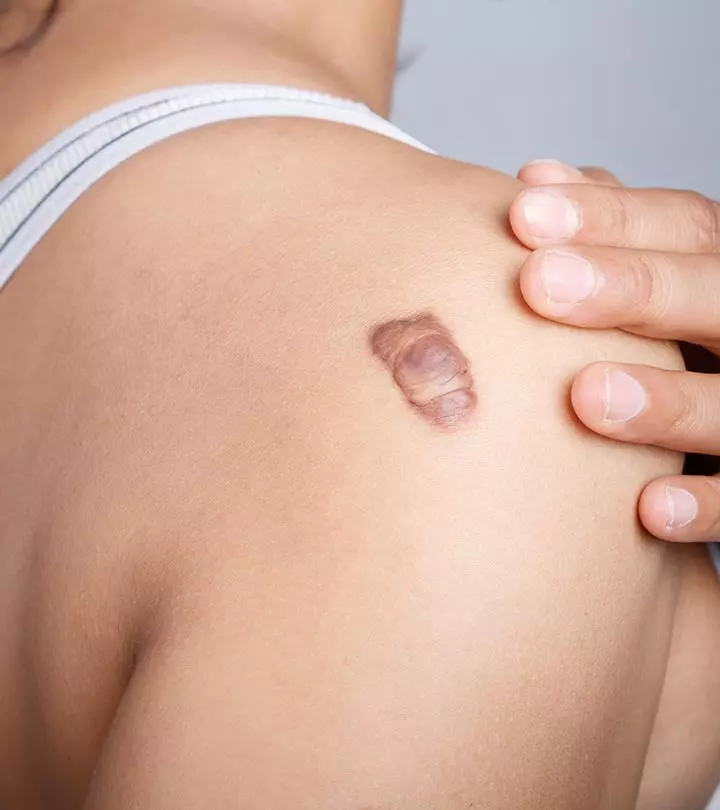
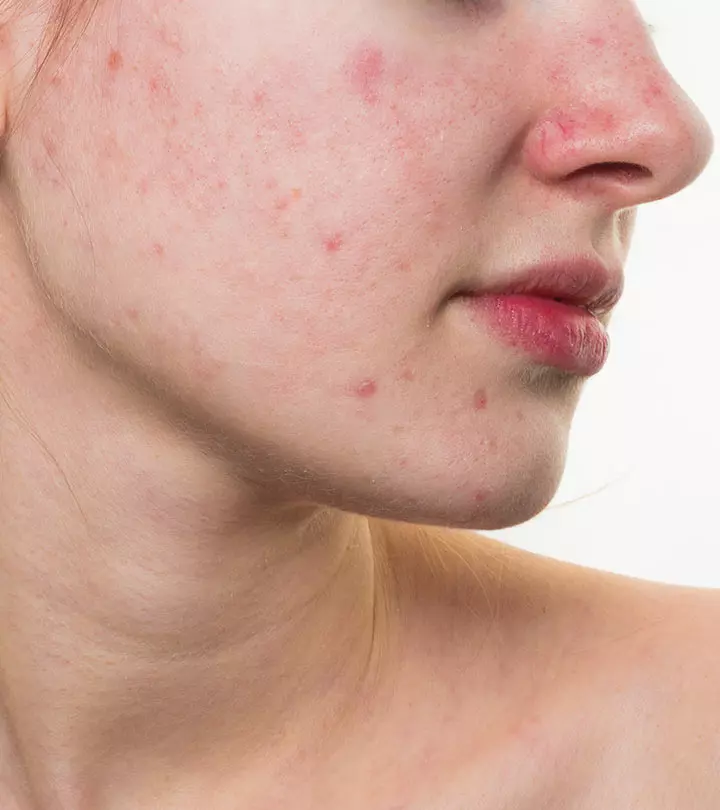
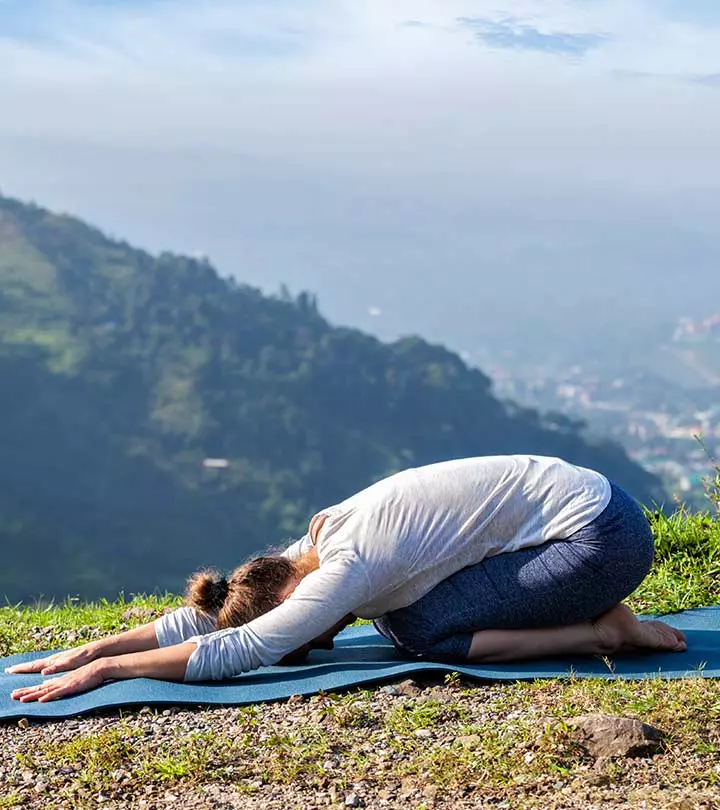
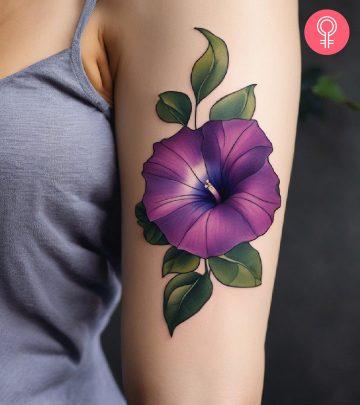
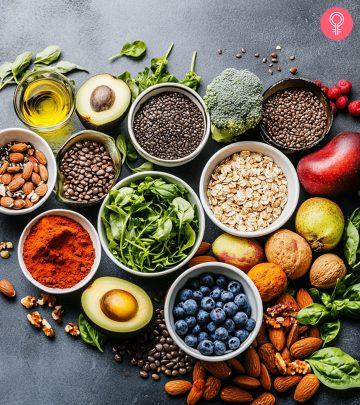
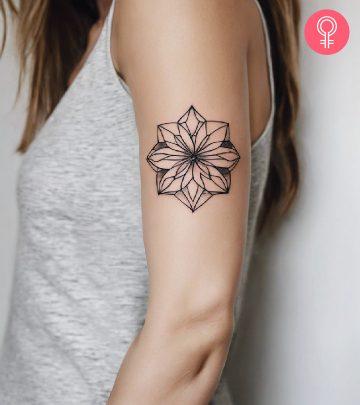
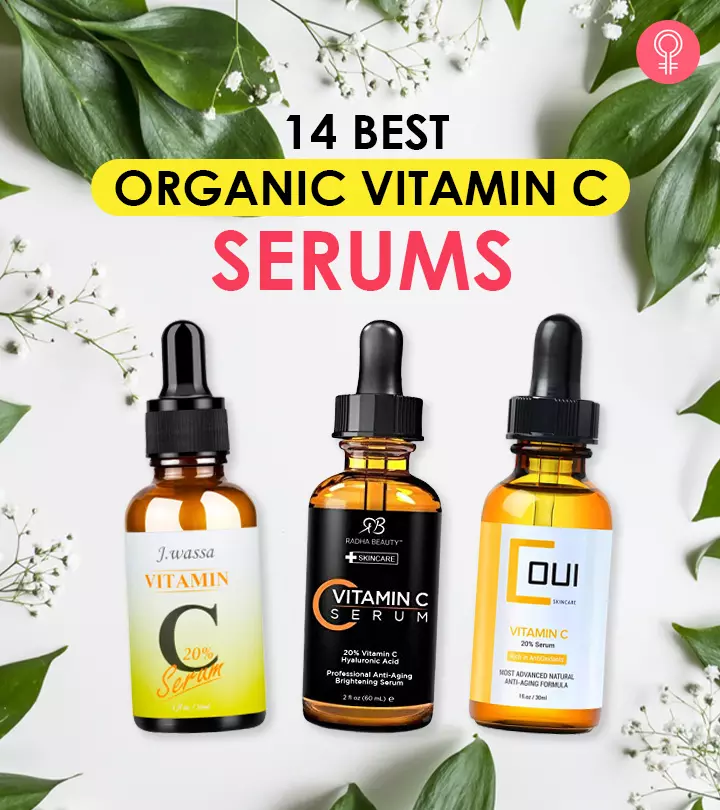



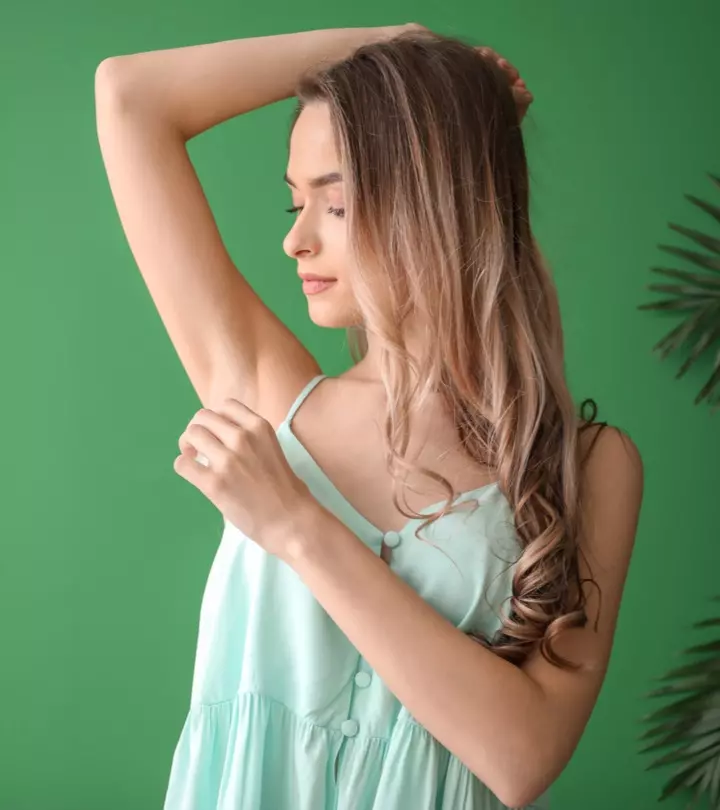

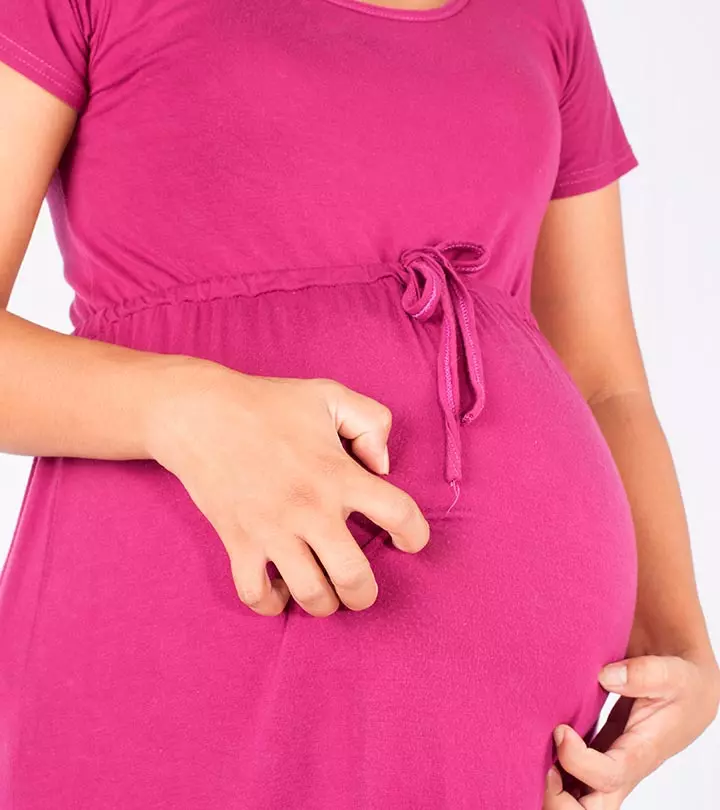

Community Experiences
Join the conversation and become a part of our empowering community! Share your stories, experiences, and insights to connect with other beauty, lifestyle, and health enthusiasts.